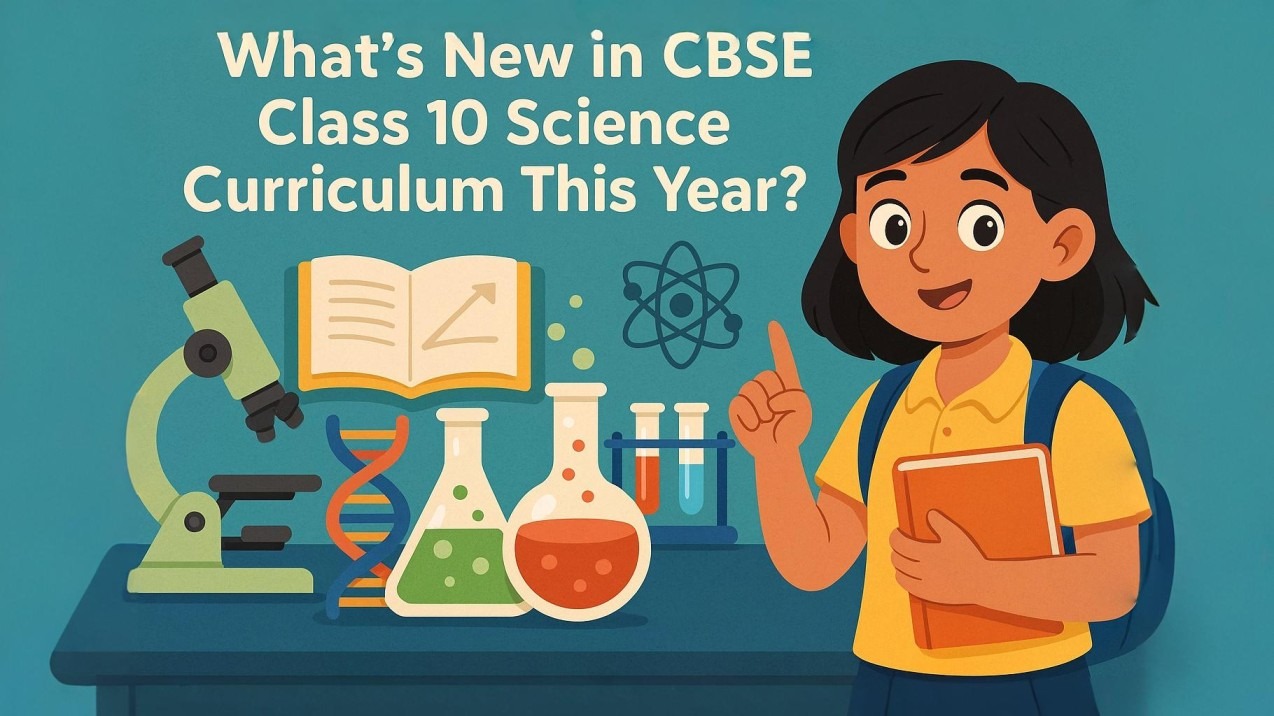Loading advertisement...
21-08-2025

Science education is more than just learning facts – it is about developing curiosity, inquiry skills, and a deeper understanding of how the natural and physical world works. The revised Science syllabus at the secondary stage has been carefully designed in alignment with the National Curriculum Framework (NCF) 2023 to help students connect knowledge with real life, nurture creativity, and appreciate the evolving nature of science.
The syllabus is organized into seven broad themes:
The Curricular Goals help students move from concrete learning at the middle stage to abstract, conceptual learning at the secondary stage.
| Chapter Name | Total Marks |
| 1. Chemical Reactions and Equations | 6 |
| 2. Acids, Bases and Salts | 3 |
| 3. Metals and Non-metals | 10 |
| 4. Carbon and its Compounds | 6 |
| 5. Life Processes | 9 |
| 6. Control and Coordination | 6 |
| 7. How do Organisms Reproduce? | 3 |
| 8. Heredity and Evolution | 7 |
| 9. Light – Reflection and Refraction | 10 |
| 10. The Human Eye and the Colourful World | 2 |
| 11. Electricity | 7 |
| 12. Magnetic Effects of Electric Current | 6 |
| 13. Our Environment | 5 |
| Total | 80 |
The internal assessment will carry a weightage of 20 marks. This will be made up of the following components:
Internal Assessment - 20 Marks | |
Periodic Tests | 5 Marks |
Subject Enrichment Activities | 5 Marks |
Practical /Laboratory Work | 5 Marks |
Portfolio | 5 Marks |
The revised Science syllabus is designed to spark curiosity, promote critical thinking, and connect science with everyday life. By exploring matter, life, motion, environment, and technology, students will not just prepare for exams but also develop the mindset of a young scientist ready to ask questions and seek answers in a rapidly changing world.
✅ Stay connected with Skool Guru for more educational tips, exam strategies, and academic guidance.
📞 Need help? Contact our mentors today!
Visit: www.skoolguru.in